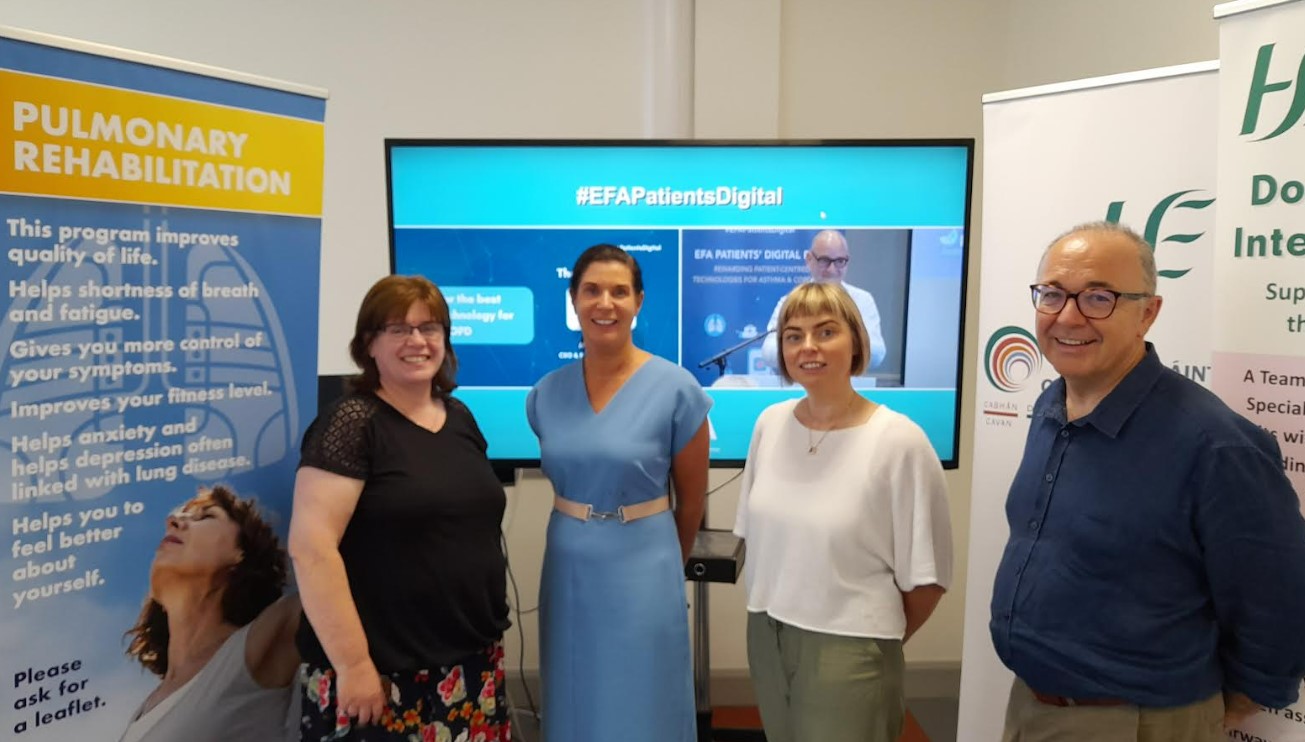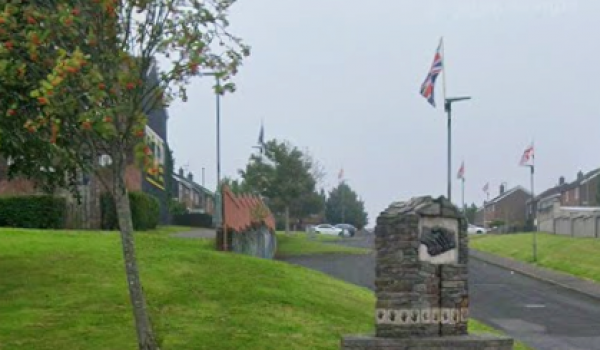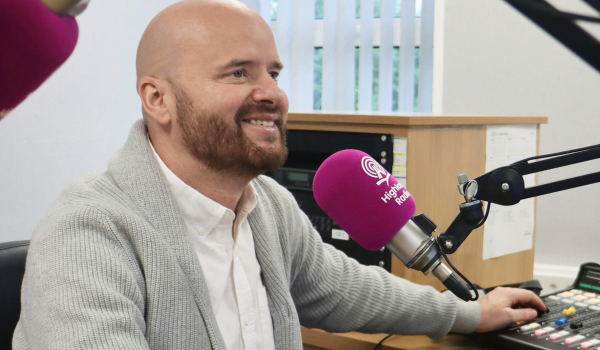
A HSE pilot scheme in Donegal providing digital support to people with COPD has been awarded a European prize.
The first of its kind, the Community Virtual Ward supports individuals in their own homes.
The HSE says the services are offered as an alternate pathway to hospital based COPD care.
The Community Virtual Ward Platform was developed during the COVID 19 pandemic, to look at respiratory rate trends, and assess the use of technology to monitor and explore the feasibility of further use in the clinical setting. This platform was offered to 10 individuals between May and August last year to evaluate the rate of admission from COPD and the benefits of inclusive self-management of this chronic disease.
Ten patients were selected and admitted to the Community Virtual Ward for remote monitoring and optimisation of the existing care plan. The results showed any worsening of the condition was identified early through respiratory rate monitoring. The patient started treatment sooner, as they had improved access to prescriptions for antibiotics and steroids, which was organised with relevant GP’s. This resulted in a significant reduction in hospital attendance and admission.
Advanced Nurse Practitioner Antoinette Doherty says the pilot programme was a huge success, and she’s hopeful more patients will be offered this type of care in Donegal.
Pic – Maura Gillen, General Manager, HSE Primary Care Services Donegal, Antoinette Doherty, HSE Advanced Nurse Practitioner in Respiratory Integrated Care, Claire McRory, HSE Operational Team Lead for CDM Donegal, and Des O’Toole, HSE Digital Clinical Innovation Lead.
*************************
Release in full –
Donegal HSE pilot scheme awarded European prize
A HSE pilot scheme in Donegal has been awarded the “European Federation for Airway Disease and Allery’s Patient’s prize for Digital COPD.”
The first of its kind, the Community Virtual Ward gives community virtual ward support to individuals with Chronic Obstructive Pulmonary Disease (COPD) in their own home. The services are offered as an alternate pathway to hospital based COPD care through the Community Virtual Ward bespoke platform. The Platform was developed during the COVID 19 pandemic, to look at respiratory rate trends and to look at the use of technology to monitor and explore the feasibility of further use in the clinical setting. This platform was offered to 10 individuals between May and August last year to evaluate the rate of admission from COPD and the benefits of inclusive self-management of this chronic disease.
Ten patients known to specialist respiratory services with COPD were selected and admitted to the Community Virtual Ward for remote monitoring and optimisation of the existing care plan. The results showed early identification of exacerbation of the medical condition through respiratory rate monitoring. The patient started treatment sooner, as they had improved access to prescriptions for antibiotics and steroids which was organised with relevant GP’s, resulting in a significant reduction in hospital attendance and admission
The patients were reviewed daily at the start of each shift by the advanced nurse practitioner. When a trend from the patient’s normal became apparent they were contacted and their self-care management was assessed and advanced nursing support was provided as indicated on the day. Nineteen courses of antibiotics and eight courses of oral steroids were dispensed to treat multiple episodes of acute exacerbation across the trial cohort. None of the patients needed to be admitted for treatment of their condition. Improvements in health outcomes through self-management of their chronic disease was also recorded and reported by the participants.
The Community Virtual Ward offered an alternate pathway to individuals living with COPD as it facilitated early intervention and management of acute exacerbations of the chronic condition and allowed the individuals living with this disease to be fully engaged in the monitoring and management of their condition. A significant increase in patients’ ability to manage their health was displayed and the feedback indicated that patients loved this new care pathway and they displayed increased knowledge and understanding of their condition and confidence to manage it.
The European Federation of Allergy and Airways Diseases Patients’ Associations (EFA) is an independent non-profit organisation which is a European alliance of over 30 allergy, asthma and chronic obstructive pulmonary disease (COPD) patients’ associations representing 30% of European citizens currently living with these diseases. Founded in 1991 in Stockholm, Sweden, EFA currently has 38 members in 24 European countries. For this project to be recognised and awarded a prize is a significant achievement for the Respiratory team in Primary Care in Donegal. This pathway will be further explored having secured funding to extend the programme in the wider Donegal area, and if successful will be an exemplar model of pathway management of those living with COPD within the ECC Chronic Disease Programme. The Team have presented their findings at a number of events across Ireland and Europe in the last number of months and will be presenting at an international Conference in Canada later in the year.
Mandy Doyle, Head of Primary Care, Community Healthcare Cavan, Donegal, Leitrim, Monaghan, Sligo said:
“It is a wonderful recognition of this programme to receive this award. The CARE programme is a fine example of how new pathways of care, new technological improvements and innovations can positively impact on the patient experience of healthcare. It also represents the ethos of the Sláintecare programme by achieving the right care being available in the right place at the right time and given by the right team and most importantly enables patients to become increasingly empowered in the management of their healthcare”.
Advanced Nurse Practitioner Antoinette Doherty said:
“We are delighted to have received the accolade. The pilot programme represented how successful alternate pathways can prove. In accepting the award, I would also like to thank all those who participated in this service improvement and I hope that we will see more patients being offered this type of care here in Donegal.”





